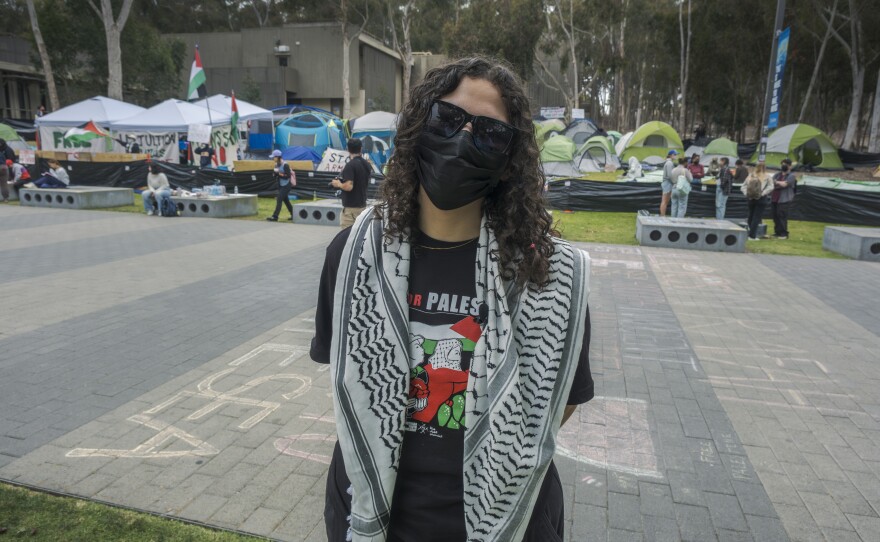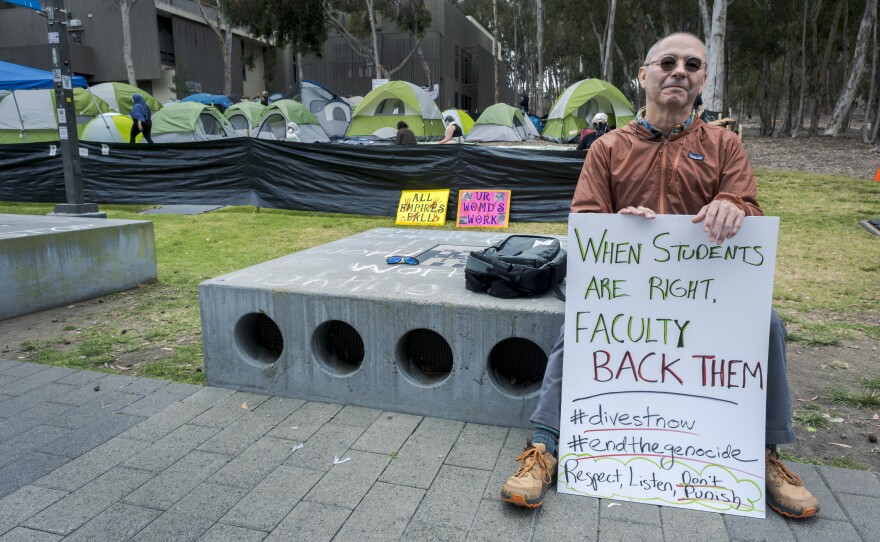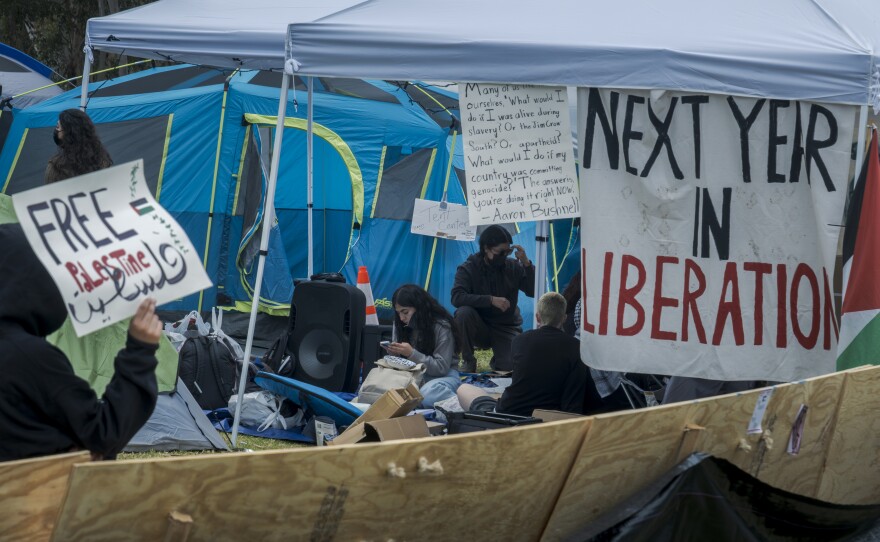Students at UC San Diego remained in their encampment of support for Palestinians in the Middle East on Thursday, the second day of the protest, near the Geisel Library.
The UCSDivest Coalition is demanding a cease-fire in the Israel-Hamas war. Among the group's other demands is a call for the university to divest from all of its Israeli financial interests.
“We won’t leave until our demands are met," said Hala Abdullah, a senior at UC San Diego with extended family in the West Bank.

She joined hundreds of other students and community activists who say they do not want violence to erupt at their camp as has happened on so many other campuses in the past week.
“The amount of cultures, identities, and religions that we have in this encampment, in this community that we have created is bringing us together," Abdullah said. "It’s not just centered on Gazan people, but it’s centered on all marginalized and oppressed people across the world."
UC San Diego is on a quarter system, which means students still have about a month left for their regular classes. Some faculty support this protest and are using it for a teachable moment.

“If you oppose student movements on campus, you’re really on the wrong side of history," said Curtis Marez, holding a sign of support in front of the encampment Thursday.
He is a professor of ethnic studies who protested in between teaching his classes.
“Free speech protests, anti-war protests, protests for ethnic studies ... all of those things have been on the right side of history and good, even though they were opposed by administrations at the time," Marez said.
So far, the university has not responded to the group's demands. Officials say they are committed to keeping everyone safe. UC San Diego's chancellor Pradeep K. Khosla has said he supports the right to free speech. He, however, has also released a statement stating the encampment "violates campus policy," which prohibits unauthorized encampments.

For now, the encampment remains.
In the spirit of community, organizers have planned for a visit from a rabbi on Friday, along with study groups for student protesters, daily prayer time, and sharing of stories.
“The way to learn about people, about cultures, and history is through storytelling," Abdullah said.






